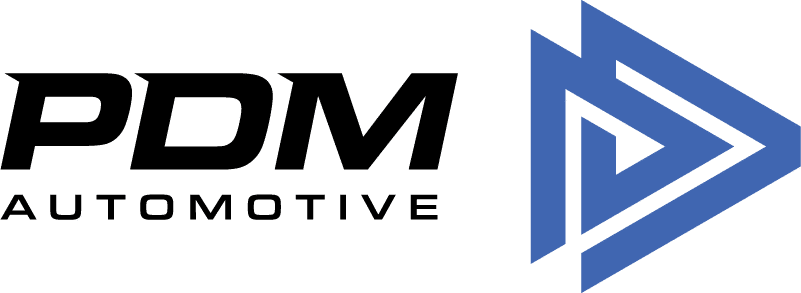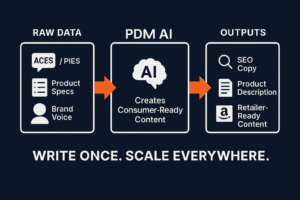According to the Department of Transportation, in 2022, the average vehicle has been on the road for around 12.5 years.
Factor in an average mileage of 13,500 per year, and you can quickly see that most people are pushing their cars to around 165,000 miles before buying a new vehicle. Given the rising cost of vehicles, experts predict that the average age of vehicles on the road will continue to increase over the next several years.
As DIYers and professional repair shops navigate the road forward, part quality will become paramount. Even vehicles from the best brands can experience unforeseen issues. Plus, every vehicle on the road has certain items (brake pads, belts, tires, etc.) that will wear out and require replacing with aftermarket or OEM components.
Leading aftermarket manufacturers must show that they are dedicated to meeting specific certification requirements that prove their parts are built to a high standard.
Let’s explore how certifications and standards from leading organizations can help the best aftermarket manufacturers stand out from the pack.
Overview of common certifications for aftermarket parts
Certifications are pivotal in setting industry-wide standards that aftermarket parts must meet to ensure they perform safely and effectively.
This overview will delve into the most recognized certifications that aftermarket parts manufacturers pursue to demonstrate compliance with stringent quality, safety, and performance requirements. From ISO standards to CAPA and NSF certifications, understanding these benchmarks is essential for anyone in the industry looking to enhance their product offerings and gain a competitive edge.
ISO (International Organization for Standardization) Certifications
The International Organization for Standardization (ISO) is an independent, non-governmental organization that develops and publishes a wide range of proprietary, industrial, and commercial standards. Founded in 1947, it brings together experts from global national standards organizations to create standardized solutions that support innovation and address global challenges.
ISO has published over 23,000 standards covering almost every industry, from technology and food safety to agriculture and healthcare. These standards ensure that products and services are safe, reliable, and high-quality.
ISO 9001
ISO 9001 is a globally recognized quality management standard that assists organizations of all sizes across various sectors in enhancing their performance, fulfilling customer expectations, and demonstrating a solid commitment to quality. The standard outlines the necessary steps to establish, implement, maintain, and continuously improve a quality management system (QMS).
Adopting ISO 9001 indicates that an organization has established efficient processes and trained personnel committed to consistently delivering flawless products or services.
Why is ISO 9001 important?
ISO 9001 is the most widely implemented quality management standard worldwide, with over a million certificates issued across 189 countries. It is part of the ISO 9000 family, which promotes seven quality management principles, including a strong customer focus and continual improvement.
Benefits of ISO 9001 in the automotive aftermarket
- Organizations ensure robust quality control processes, which boosts customer trust and increases satisfaction.
- Provides guidelines for efficiently resolving customer complaints, enhancing the timeliness and effectiveness of problem-solving.
- Facilitates identifying and eliminating inefficiencies, reducing waste, and streamlining operations, which supports cost-effective practices and improved outcomes.
- Regular audits and reviews promoted by ISO 9001 help organizations continuously refine their quality management systems. This ongoing improvement helps them remain competitive and achieve sustained success.
ISO/TS 16949
ISO/TS 16949 is a comprehensive technical specification for developing a quality management system that provides continual improvement. It emphasizes defect prevention and reduces variation and waste in the automotive industry supply chain.
Developed collaboratively by the International Automotive Task Force (IATF) and members of the International Organization for Standardization (ISO), this specification seeks to harmonize disparate assessment and certification systems globally in the automotive sector.
Adopting and maintaining ISO/TS 16949 certification provides automotive suppliers and manufacturers with several significant advantages:
- Certification is recognized globally and signifies a commitment to quality that is respected industry-wide.
- ISO/TS 16949 builds trust with automotive manufacturers and end-users by ensuring high-quality standards.
- Focusing on reducing variation and waste leads to more efficient processes that significantly lower costs.
- Many of the world’s leading automotive manufacturers require their suppliers to be certified to ISO/TS 16949. This makes it essential for businesses aiming to enter or expand within the global automotive market.
CAPA (Certified Automotive Parts Association)
Established in 1987, the Certified Automotive Parts Association (CAPA) was created to serve the public by developing and managing a testing program that ensures the suitability and quality of automotive replacement parts.
As an independent, unbiased, and non-profit organization, CAPA operates with complete transparency and without any vested interest in the outcomes of its evaluations. Over the years, CAPA has earned a reputation as the auto industry’s recognized authority on the quality and safety of parts used for collision repairs.
This certification plays a crucial role in maintaining rigorous quality standards, which are essential for consumer satisfaction and industry competition. By ensuring that aftermarket parts meet or exceed OE specifications, CAPA helps create a market for high-quality alternatives to OEM parts, benefiting both consumers and insurers.
Insurance companies often prefer or require the use of CAPA-certified parts for repairs following accidents because these parts are guaranteed to perform well, helping maintain the vehicle’s value and safety after repair.
NSF (National Sanitation Foundation):
NSF International’s certification covers various components, including body parts, lighting equipment, and other crucial automotive parts.
Each certified part undergoes rigorous testing and evaluation to verify that it matches or exceeds the quality and safety standards set by OEMs. This comprehensive approach helps maintain the integrity and performance of vehicles repaired with aftermarket parts, supporting vehicle safety and functionality.
Key aspects of NSF International’s certification process include:
- Quality Assurance: Ensuring that the manufacturing processes for aftermarket parts produce consistent and high-quality products that can reliably replace OEM parts.
- Safety Verification: Testing parts to confirm they meet essential safety criteria, thereby protecting consumers and helping prevent automotive failures that could lead to accidents.
- Performance Testing: Evaluating whether aftermarket parts perform adequately and ensuring they do not compromise the vehicle’s operation.
E-Mark and SAE (Society of Automotive Engineers)
E-Mark Certification
The E-Mark certification is a European regulatory mark that signifies a vehicle part has met all relevant European safety and environmental standards. This certification is essential for manufacturers who wish to sell their automotive products within the European Economic Area (EEA). The mark indicates compliance with EU directives regarding safety, environmental concerns, and electromagnetic compatibility.
Obtaining an E-Mark involves rigorous testing and evaluation by designated technical services to ensure that each component meets the stringent criteria set forth by European legislation. The certification covers a broad range of vehicle parts, from lighting and electrical components to tires and engine parts, ensuring they do not compromise the safety or environmental standards of the vehicle.
Key aspects of E-Mark certification include:
- Safety Compliance: Ensuring all components meet the highest safety standards to prevent risk to users and other road users.
- Environmental Protection: Verifying that the parts do not emit harmful pollutants above the threshold levels and are consistent with the EU’s environmental conservation goals.
- Market Access: Facilitating easier access to the European market, as compliance with E-Mark standards is often mandatory for automotive parts sold within the EU.
SAE Standards
SAE International, formerly known as the Society of Automotive Engineers, is a professional association and standards-developing organization that sets benchmarks for the quality, safety, and performance of automotive parts.
Rigorous SAE standards are recognized globally and are critical in guiding the automotive industry. These standards encompass various vehicle systems and components, including various automotive parts’ dimensions, strength, durability, and material specifications. This ensures that components such as engines, transmissions, brakes, and lighting meet predefined specifications for performance and safety.
SAE standards play several crucial roles:
- Performance Consistency: By setting specific criteria for how automotive parts should perform, SAE standards ensure that these components function correctly under expected conditions and interact safely with other vehicle systems.
- Quality Assurance: SAE standards help manufacturers maintain high quality by defining how products should be designed, tested, and manufactured. This helps prevent defects that could lead to safety issues or customer dissatisfaction.
- Innovation and Compatibility: Following SAE standards can drive innovation as manufacturers strive to meet these high benchmarks while also ensuring that new products are compatible with existing systems and technologies.
- Global Industry Relevance: While SAE is based in the U.S., its standards are used worldwide, facilitating international trade within the automotive industry. Manufacturers that adhere to these standards can more easily compete in global markets.
Importance of Certifications in Aftermarket Parts
By aligning with the highest standards of automotive part quality and safety, manufacturers are not merely investing in a process but enhancing their market presence, customer base, and, ultimately, their bottom line.
Certifications serve as a stamp of approval from respected industry bodies, indicating that a manufacturer’s products meet high standards for quality and safety.
For manufacturers, obtaining certifications such as ISO 9001 or CAPA isn’t just about meeting baseline regulatory compliance—it’s about showcasing a commitment to excellence and continuous improvement. This enhances their reputation among distributors, retailers, and the industry at large.
Certified products are often perceived as higher quality, opening new business opportunities and collaborations with top-tier automotive brands seeking dependable suppliers and discerning enthusiast consumers.
Role of certifications in building consumer trust and confidence
In the competitive landscape of aftermarket parts, certifications are pivotal in building consumer trust and confidence.
When a product carries an established certification like NSF or SAE, it communicates to consumers that it has undergone rigorous testing and quality assurance processes. This reassurance is vital in the automotive sector, where safety and performance are paramount. Retailers and repair shops are more likely to choose and recommend certified products, knowing that these parts can increase customer loyalty, repeat business, and a stronger brand image.
Differentiating products in a competitive market
Certifications can significantly differentiate a manufacturer’s products from competitors in a market flooded with options.
Certifications like ISO/TS 16949, which focuses on specific quality standards in the automotive production and service part industry, provide a competitive edge by highlighting a manufacturer’s adherence to international quality standards. This differentiation is particularly compelling in B2B interactions, where businesses seek partners to deliver consistently reliable components that won’t jeopardize their operations or brand reputation.
Certified quality helps maintain a strong market presence and attracts new business in a landscape where quality can often decide between similar products.
Embrace certifications and advanced PIM solutions with PDM Automotive
In today’s competitive automotive industry, achieving and maintaining high standards through certifications such as ISO and NSF is necessary. These certifications are key to demonstrating your commitment to quality, safety, and efficiency, helping build trust with business partners and consumers. They serve as a standard of reliability and excellence in manufacturing, signaling that your products meet stringent international standards.
At the same time, it’s crucial to recognize that the foundation of effective certification compliance extends beyond product quality alone—it also encompasses how you manage and present your product data. Here, PDM Automotive’s expertise in Product Information Management (PIM) can play a pivotal role.
Leveraging PDM’s PIM solutions can enhance your data management practices, ensuring that your product information is accurate, consistent, and compliant with industry standards. This supports your certification efforts and optimizes your market presence and operational efficiency.
PDM Automotive is here to assist you in meeting and exceeding industry standards, ensuring that every aspect of your business reflects quality and precision. Contact PDM Automotive to learn how we can support your journey toward achieving success in a crowded marketplace.

More Resources
Elevate Your Brand in the Automotive Aftermarket With These Content Management Strategies



